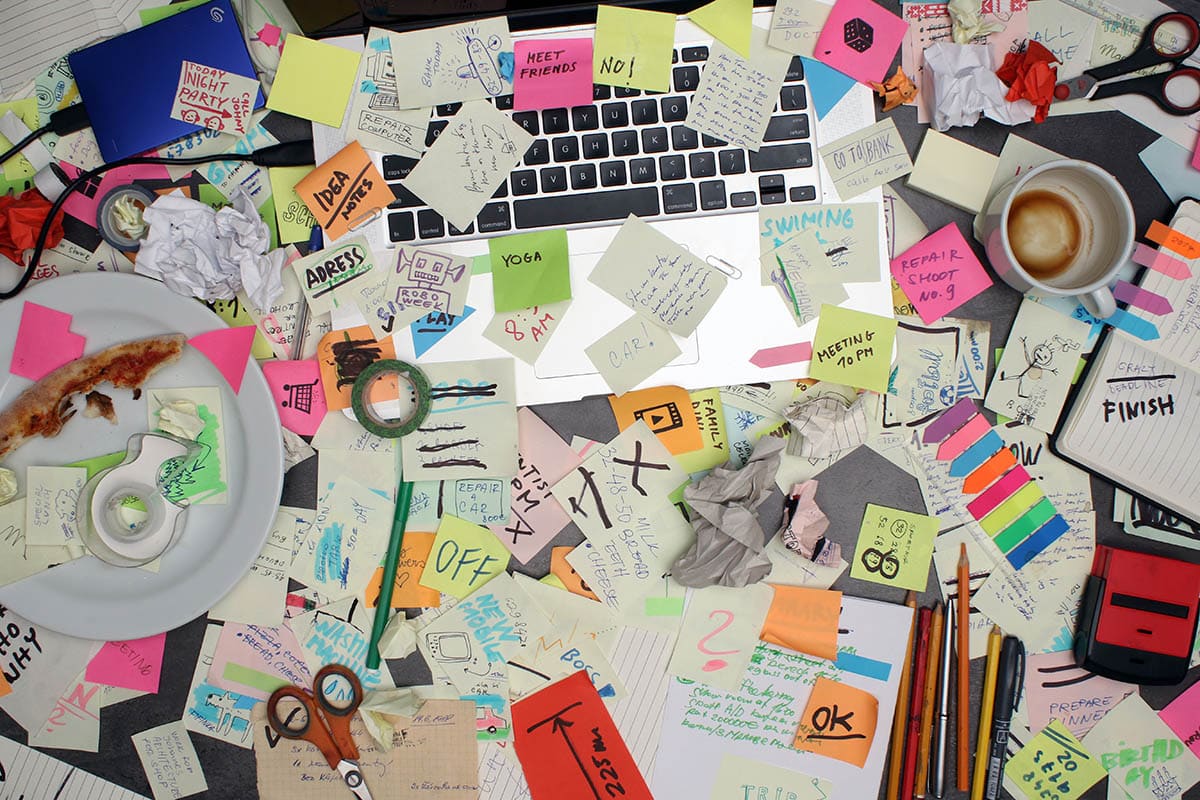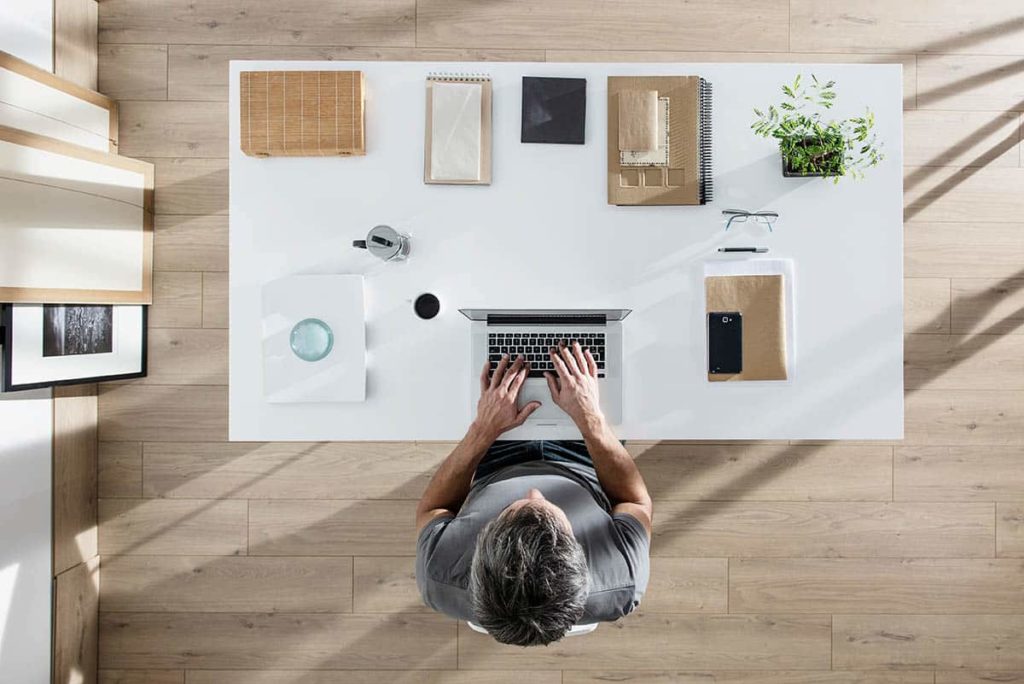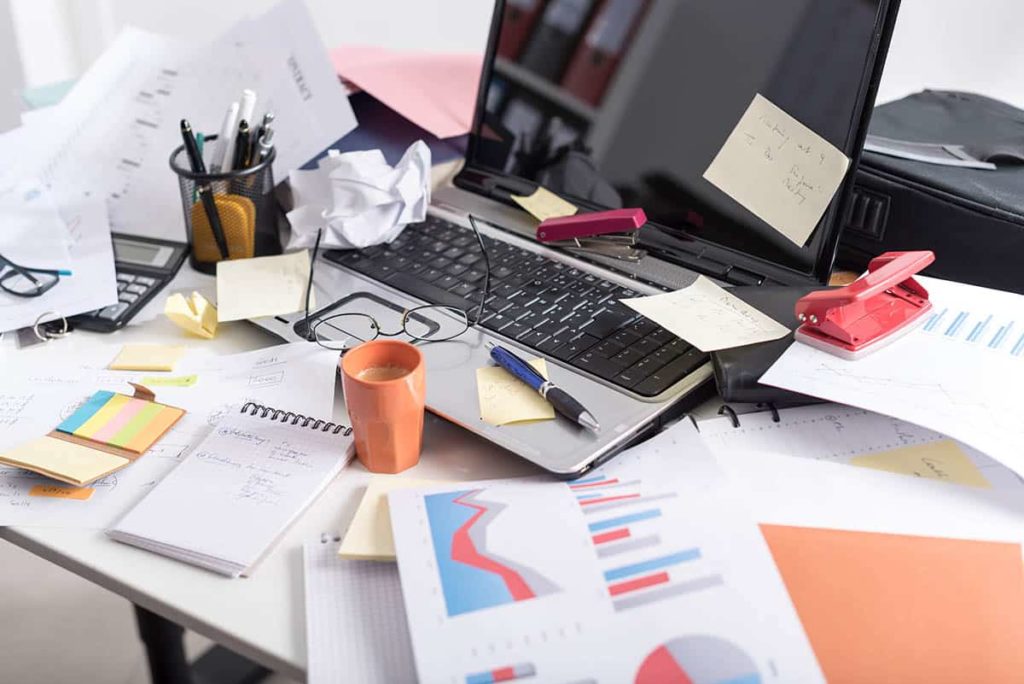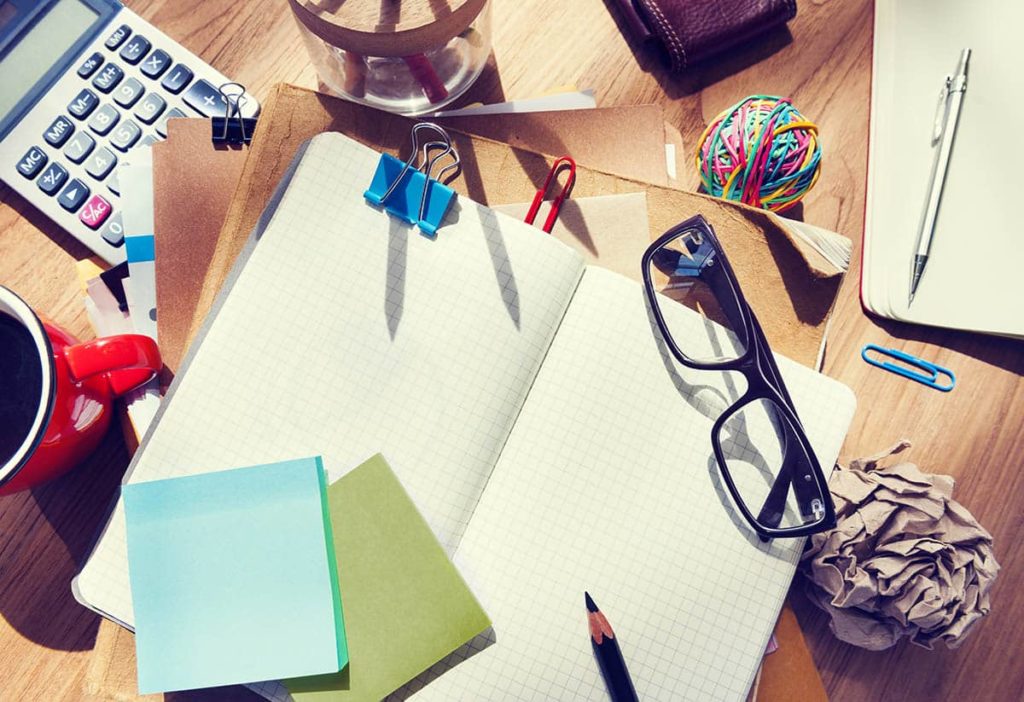
Messy Desk vs Clean Desk: What Does the State of Your Desk Say About You?
What does your desk look like? Is it perfectly organized? Are there papers and knickknacks strewn about everywhere? Or perhaps your desk falls somewhere in the middle? What your desk looks like can actually say a lot about you, though it might not be what you think. We’ve done the research, so read on as we break down what experts have to say.
Perception of a mess
Some people firmly believe a messy desk means less productivity. While there is some research to support that hypothesis, other data says the opposite. The truth is there is no conclusive answer.
Scott Pack, a staff reporter for the Science Times, explores both of these schools of thought, writing, “What does a cluttered desk say about you? Depending on what you read or where you look, there are opposing answers to this seemingly simple question. Most, however, usually fall into one of two camps. A cluttered desk means you are a messy genius expressing healthy cognition, or you’re unorganized and your mess hurts your production and causes undue stress.”
According to Pack, “For those wanting a definitive answer about whether or not clutter is a good thing, the answer is an ardent and unwavering-maybe. It really depends on the level of clutter. Some controlled clutter has been tied to creativity and improved production, while extreme clutter is seen as detrimental to both your physical and mental health.”
The Research

An article written by Vivian Giang for Insider, an American online media company, takes a look at a study completed by researchers at the University of Minnesota.
According to Giang,the study “concluded that it’s most beneficial to have a messy desk at the beginning of a project and a clean one at the end. A messy environment promotes creative thinking and unconventional new ideas, whereas a clean desk will help your mind focus on order and expectations. The move away from chaos (the messy desk) will help you finish your project.”
Giang’s article continues on to say, “The research concluded that both environments are beneficial and have different psychological consequences: ‘There exists a large and growing industry around instilling environmental orderliness. Proponents claim that people see measurable life improvements from becoming neat and tidy, and they can point to multiple billions of dollars in annual revenue as evidence of success. In contrast, many creative individuals with Nobel prizes and other ultra-prestigious awards prefer — and in fact cultivate — messy environments as an aid to their work.”
While the University of Minnesota research points to the benefits of a messy desk, other research shows the opposite.
The Science Times article we referenced earlier by Scott Pack cites two other studies that concluded the opposite findings. Pack’s article reads in part, “ A 2009 study performed at Stanford University shows the brain really isn’t great at trying to focus on multiple things at once. And a study published in Current Psychology shows a link between procrastination and clutter. In some cases, multitasking was shown to have a negative impact on mental health digest, by releasing increased levels of the stress hormone cortisol.”
Brother, a print and imaging technology company, put together a variety of helpful statistics regarding messy desks. Brother interviewed more than 2,000 UK office workers and found that, “41% of those we surveyed said they believed a tidy workspace makes people more productive; 21% admitted that having a cluttered desk has somehow increased their workload, while 20% said a workmate’s messy space has had a negative impact on how much they were able to get done in their working day.”
Different Personalities

According to an article posted on the Cleveland Clinic’s Health Essentials website, desk cleanliness “might simply come down to your personality.”
The article quotes clinical psychologist Scott Bea, PsyD., who says in part, “There’s often a method to someone’s madness. In the end, messy or organized, it comes down to what makes people most productive.”
Continuing on, the article states, “What matters most when evaluating your workspace is your own productivity, Dr. Bea says. If you work best when you focus on your projects without a care for stacks of file folders around you, so be it. But if the clutter around you impedes your productivity, best get to tidying up.”
Infamous Messy Desks

Some of the best-known brightest minds in history, including Mark Twain, Steve Jobs and Albert Einstein, are known to have had messy desks.
In fact, if you want a glimpse for yourself, Einstein’s desk is featured here in a blog post on famous desks written for Smartway2.
An article published by American business media company Inc. by contributing editor Geoffrey James focuses on messy desks, reading in part, “Albert Einstein famously pointed out that “If a cluttered desk is a sign of a cluttered mind, of what, then, is an empty desk a sign?” Thomas Edison, who had a famously messy desk, must have agreed.” James concludes his piece writing, “So if your work area, like mine, is usually a mess, it’s time to stop apologizing to the neat-freaks and start feeling good about our ability to prioritize. While our cluttered desks may not prove we’re brilliant, they do show that we might be geniuses.”
No Clear-cut Answer

While the question as to whether a messy desk means you are distracted and unproductive or a creative genius who knows where everything belongs is definitely up for debate, one point that is agreed upon is that everyone needs to find the right balance for themselves. A piece published on Medium by author, speaker and transformation and change expert Greg Satell sums up the matter with the following statement, “the most effective work environments have a healthy mix of order and disorder.”
If you’re figuring out the best way to return to the office or implement hybrid, flexible working, check out our recent webinars.
To optimize your workplace experience, make rooms, desks and other resources bookable in advance. That way you can leverage utilization data to create your ideal employee experience. To see how it works book a demo.


